Other
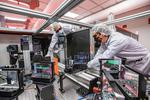
“Advances in physics, medicine, and security enabled by major expansion to one of the world’s most powerful lasers. Researchers at Lawrence Berkeley National Laboratory (Berkeley Lab) have completed a major expansion of one of the world’s most powerful …

“The atomic nucleus is a busy place. Its constituent protons and neutrons occasionally collide, and briefly fly apart with high momentum before snapping back together like the two ends of a stretched rubber band. Using a new technique, physicists studying …
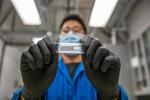
“According to the United Nations, less than a quarter of all U.S. electronic waste gets recycled. In 2021 alone, global e-waste surged at 57.4 million tons, and only 17.4% of that was recycled. Some experts predict that …
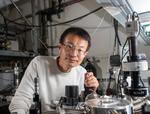
“Breakthrough offers industry sustainable alternative without compromising performance. Solar panels, also known as photovoltaics, rely on semiconductor devices, or solar cells, to convert energy from the sun into electricity. To generate electricity, solar cells need an electric field to separate …
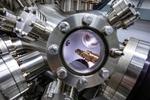
“New approach leverages artificial intelligence to augment automated experiments. Two-dimensional materials, which consist of a single layer of atoms, exhibit unusual properties that could be harnessed for a wide range of quantum and microelectronics systems. But what makes them truly …

“Berkeley Lab technology provides low-carbon manufacturing solution for plastic products. Scientists have designed a new material system to overcome one of the biggest challenges in recycling consumer products: mixed-plastic recycling. Their achievement will help enable a much broader range of …
News Berkeley Lab Researchers Record Successful Startup of LUX-ZEPLIN Dark Matter Detector at Sanford Underground Research Facility

“Deep below the Black Hills of South Dakota in the Sanford Underground Research Facility (SURF), an innovative and uniquely sensitive dark matter detector – the LUX-ZEPLIN (LZ) experiment, led by Lawrence Berkeley National Lab (Berkeley Lab) – has passed a check-out …
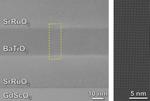
“Scientists turn century-old material into a thin film for next-gen memory and logic devices. The silicon-based computer chips that power our modern devices require vast amounts of energy to operate. Despite ever-improving computing efficiency, information technology is projected to consume …

“Advances in microelectronics – also known as microchips or chips – have enabled fast, powerful, compact smartphones and laptops – electronic devices that were once, long ago, the stuff of science fiction. Chips consist of miniaturized components called transistors – tiny silicon switches that …
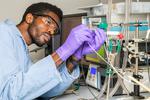
“Berkeley Lab researcher proposes novel scheme for capturing carbon dioxide and combating climate change You may be familiar with direct air capture, or DAC, in which carbon dioxide is removed from the atmosphere in an effort to slow the effects …
